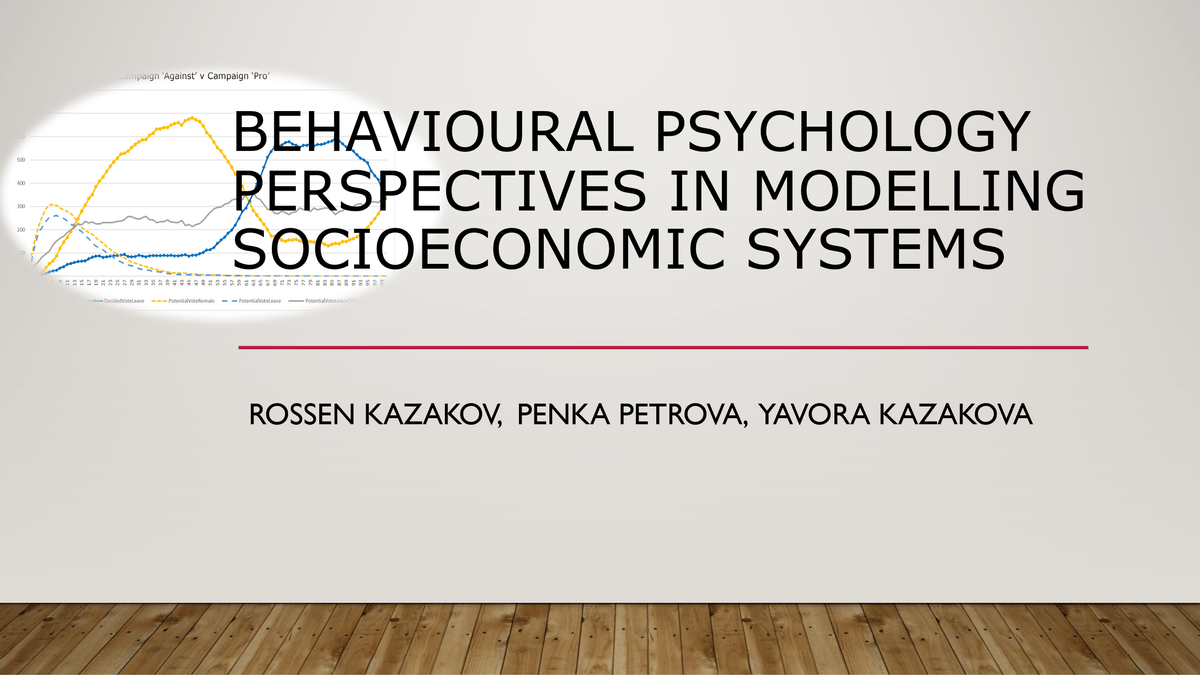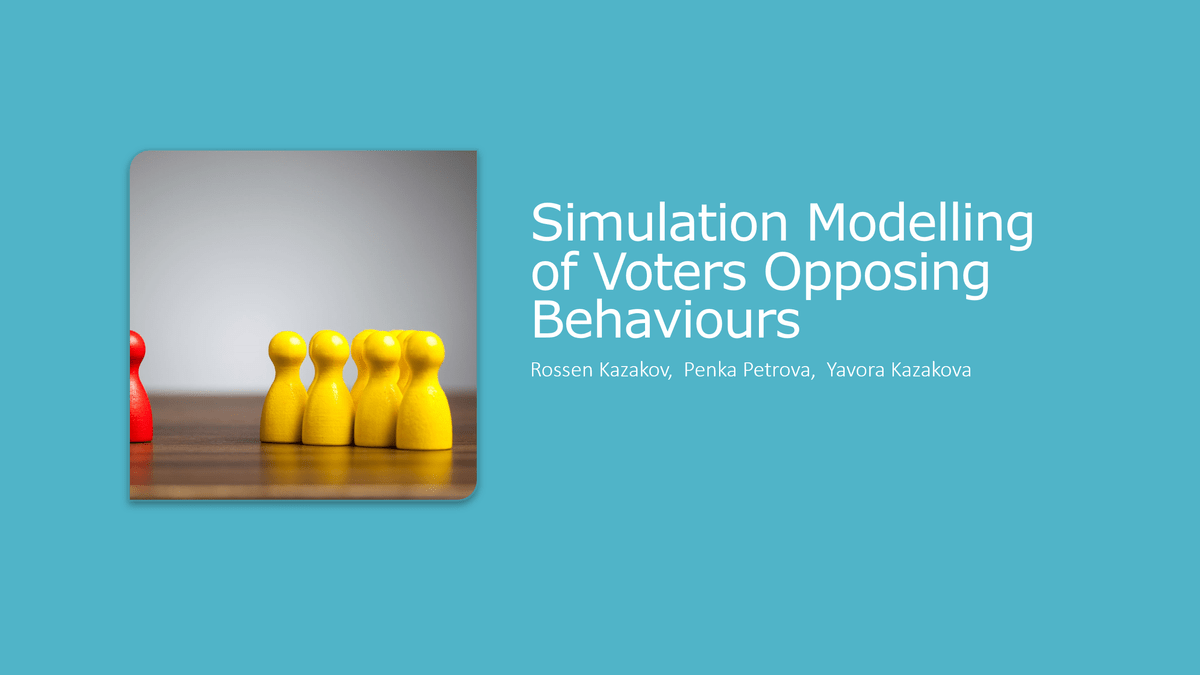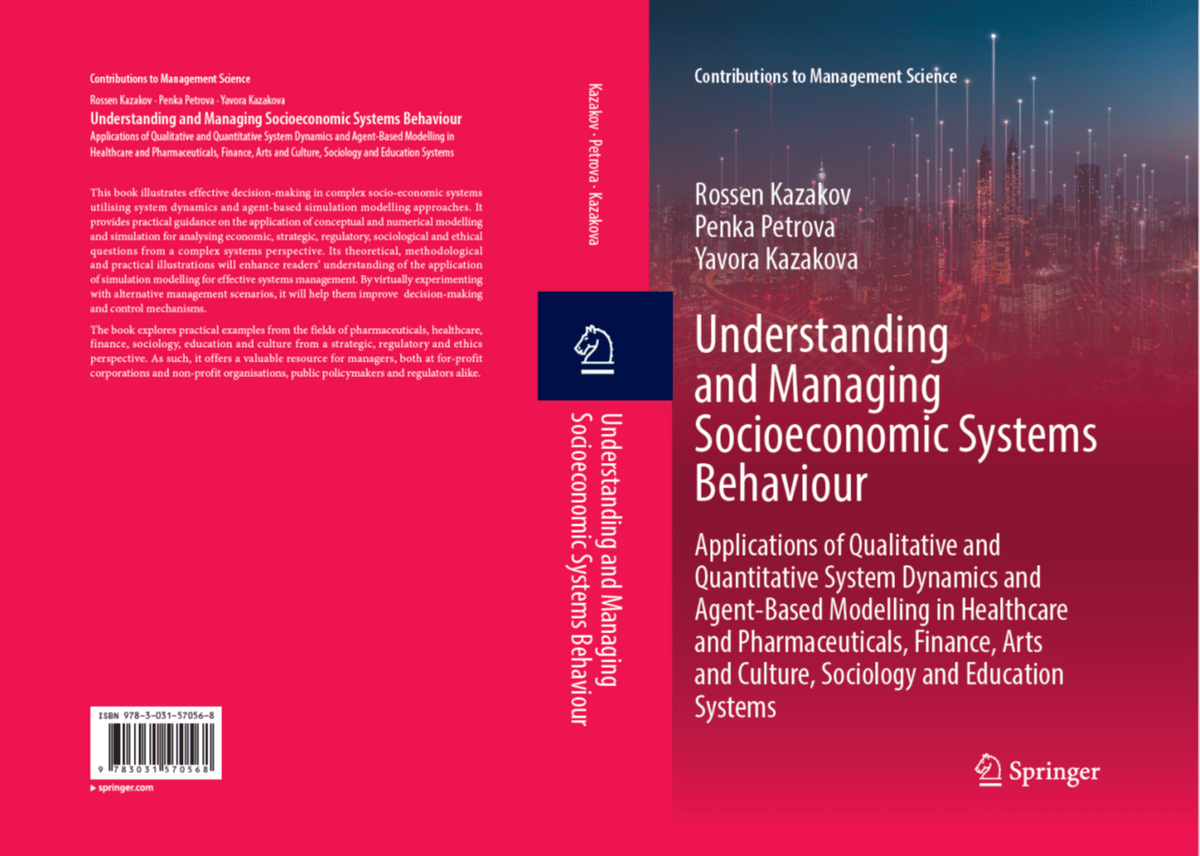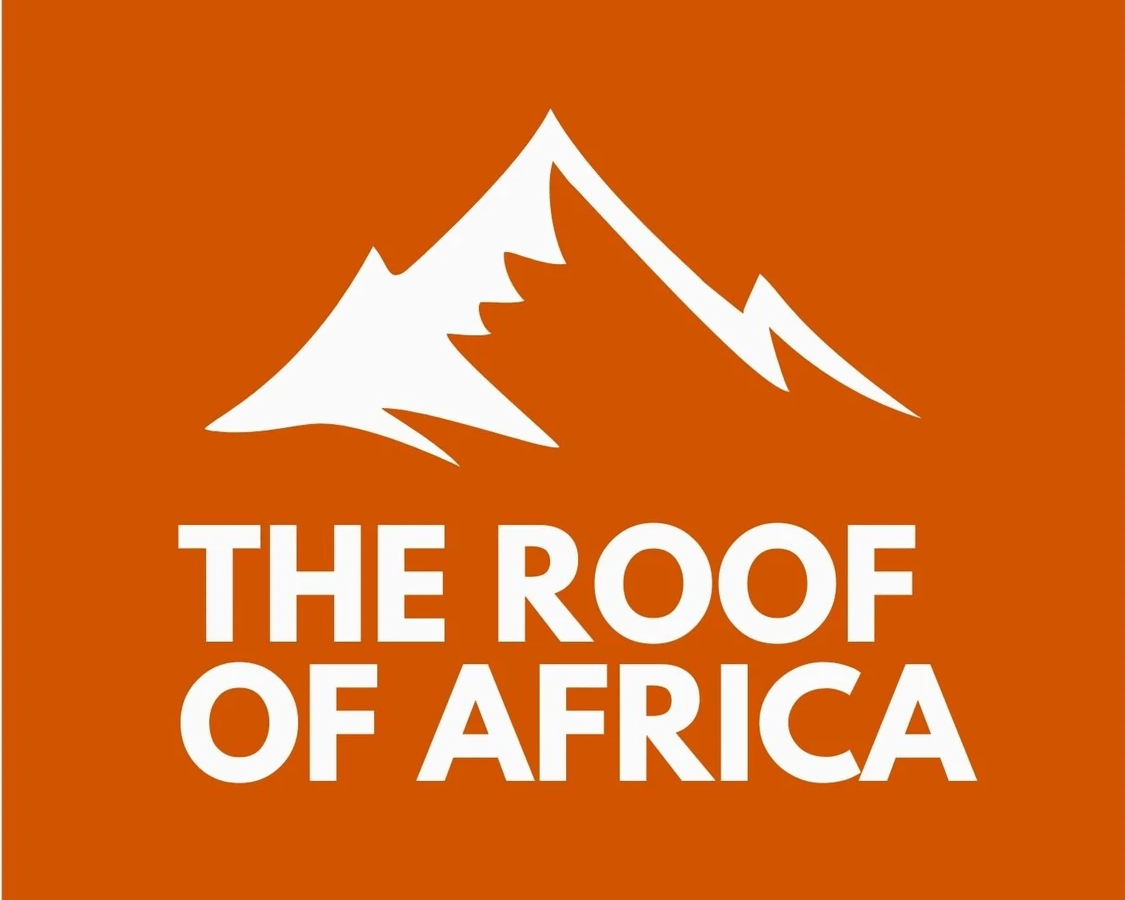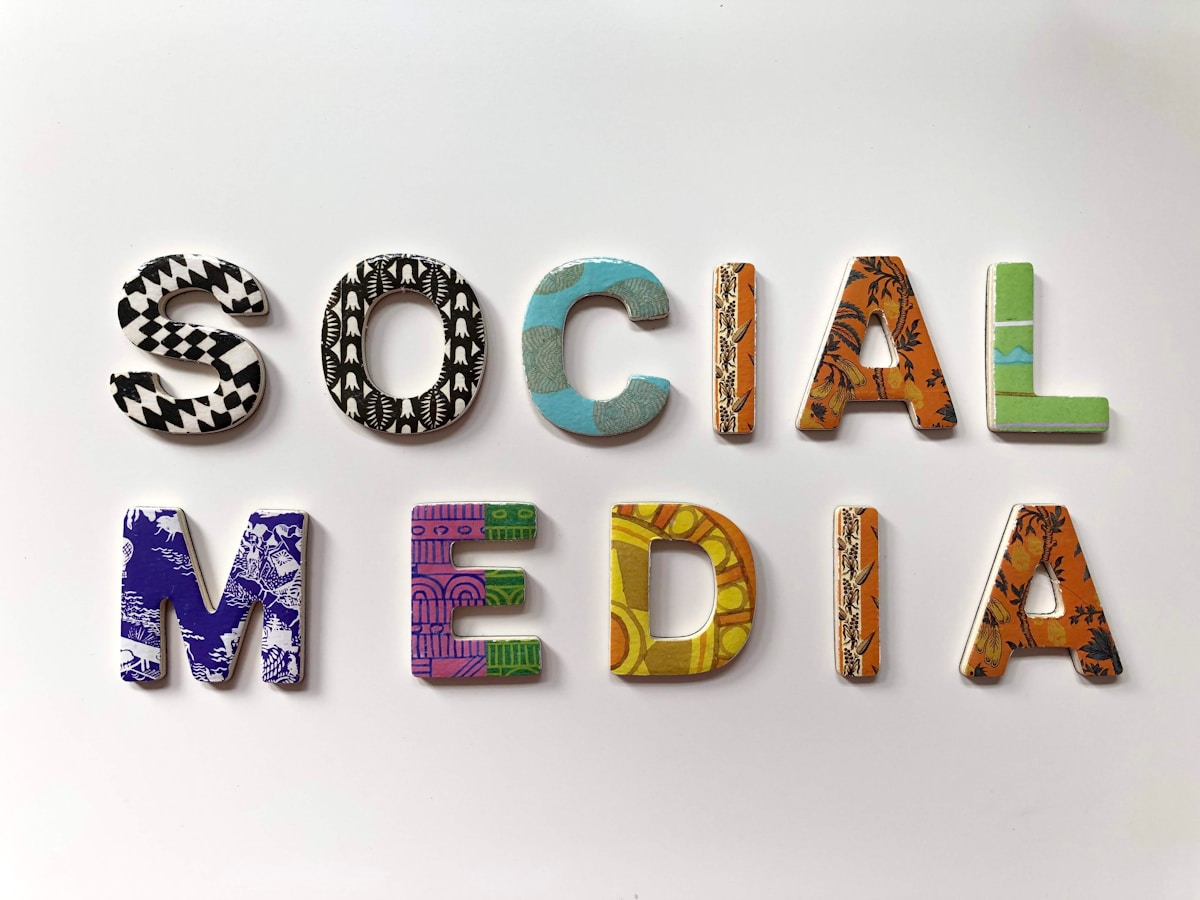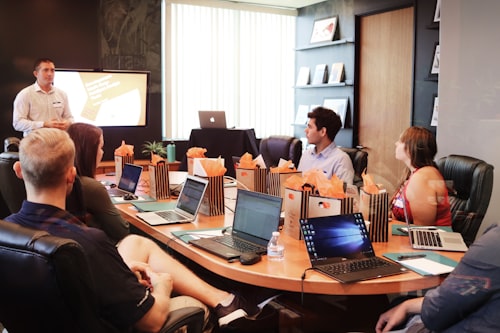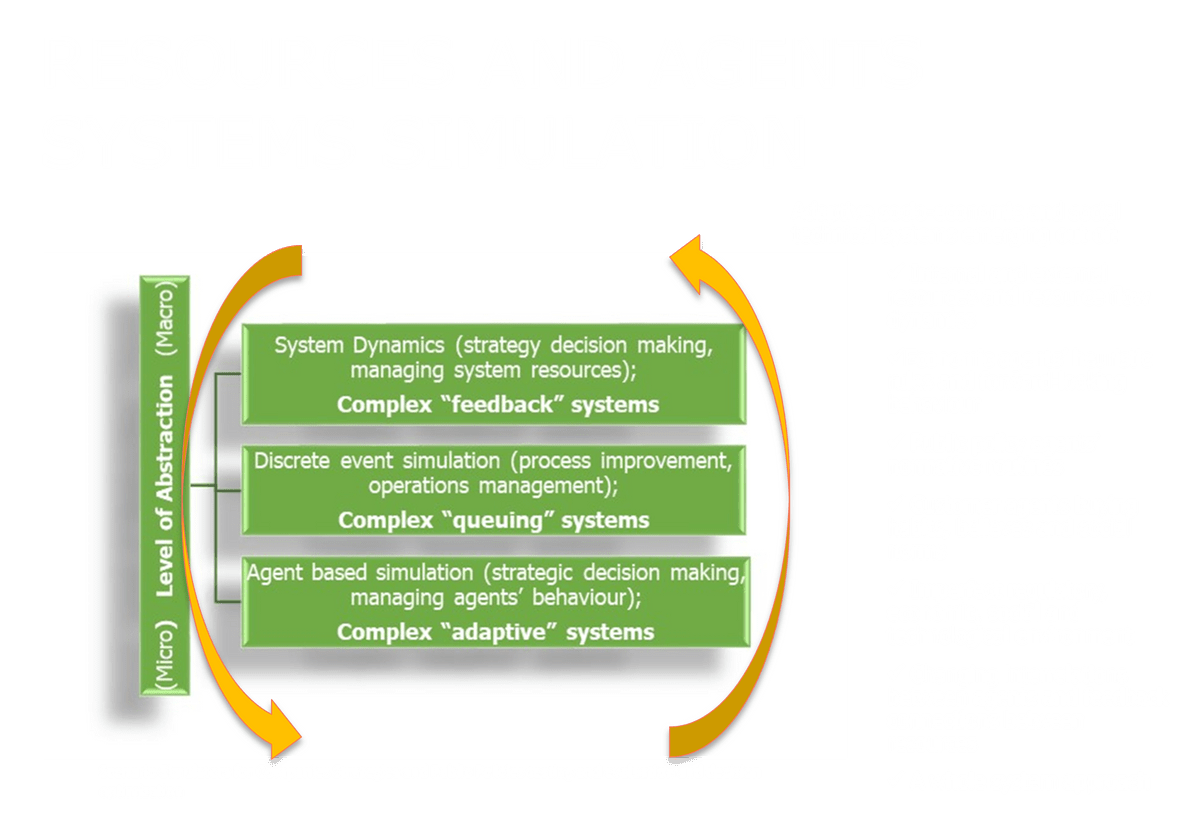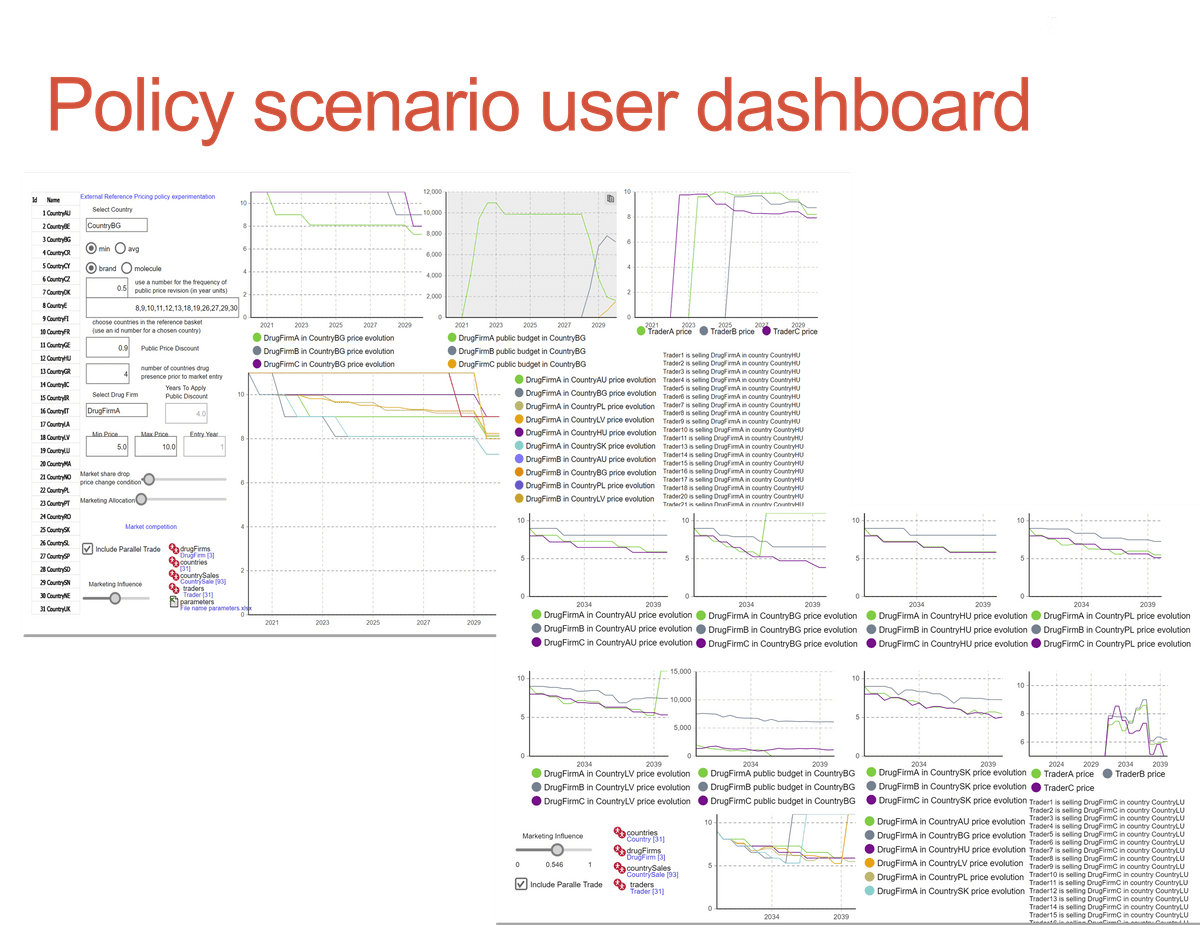
ScenarioSimlab
- …
ScenarioSimlab
- …
ScenarioSimlab
Scenario Simulation Laboratory
Interactive research environment for strategy and policy design, scenario testing and evaluation, and decision making optimization
For
Public Institutions
Companies
Non-profits
Research and Education
Interactive Courses
What We Do
Research and Design of Scenario Simulators, Custom Scenario Simulators and Scenario Simulation Courses
Custom Scenario Simulators
Order scenario simulators built specially for you to support your research needs
Applied Scenario Simulators
Get immediate access to validated scenario simulators applied in practical research

Scenario Simulation Courses
Develop your practical capabilities in using and designing scenario simulators
Research Papers
Presenting our research at international conferences and symposia

Behavioural Psychology Perspectives in Modelling Socioeconomic Systems
Rossen Kazakov, Penka Petrova, Yavora Kazakova
Psychology and Human Behavior SIG, February 14, System Dynamics Society online event
Socioeconomic systems are complex adaptive systems comprising interacting agents and limited resources. Individual or organizational actors follow certain behavioural routines informed by their decision-making heuristics to reduce choice complexity and judgement. The presentation provides examples from the forthcoming Springer book in Management Science: ‘Understanding and Managing Socioeconomic Systems Behaviour’, coauthored by the presenters. Examples from healthcare, finance, sociology, and education are provided. The book explores different resource-agent qualitative and quantitative modelling and simulation applications in healthcare and pharmaceuticals systems, financial market systems, ideological and education systems.

Simulation Modelling of Ideological Diffusion and Opposing Voters Behaviours
Rossen Kazakov, Penka Petrova, Yavora Kazakova
2023 BeNeLux SDS Chapter Symposium, Hague, October, 2023
This paper explores referendum campaigns and highlights the complex interplay of various factors, resources and agents that shape voting attitudes. The role of the media and ideological propaganda all play significant roles in shaping the outcome of a campaign, and have important implications for understanding the dynamics of sociopoloitical campaigning more broadly.
The main method applied is a hybrid resource – agent approach to simulation modelling, using system dynamics with agent-based components. Main key ''resources'' and ''agents'' can be pointed out as information or content resources that can be communicated and disseminated through other resources, like media or social networks, and individuals or organizations that actively create, disseminate or receive ideological messages and take voting decisions.

Conference Paper in Session: ''Just Sustainability Transitions'', stream ''OR and Ethics for Public Good''
Project: ''Systems Approach to SDG Implementation in Rural Tanzania: Access to Education, Health, Food and Family Wellbeing''
Genuine Mwasha, Penka Petrova, Yavora Kazakova
Partner: The Roof of Africa SCIO
33rd European Conference
on Operational Research, 2024, Copenhagen
Sustainability transitions are complex and multidimensional processes that involve changes in socio-technical, socioeconomical and sociopolitical systems, institutions, cultures, and practices. Therefore, it is important to consider the ethical and just implications of sustainability transitions, in relation to sustainable development goals and environmental, social and governance principles.
Research Projects and Publications
Research projects and publications related to ongoing or previous ScenarioSimlab work and activities

Springer Book Project: ''Understanding and Managing Socioeconomic Systems behaviour''
Rossen Kazakov, Penka Petrova, Yavora Kazakova
Socioeconomic systems are complex adaptive systems that are characterized by the interactions between various resources and agents, as well as the institutions and behaviouralrules that govern their behaviour.
This book provides examples from healthcare and pharmaceuticals, financial markets, sociology and arts, and education and social networks systems, focusing on applications of qualitativeand quantitative modelling and simulation for the exploration and understanding of their behaviour.

The Roof of Africa Pro Bono Project: Scenario Simulation for Sustainable Development in Sub-Saharan Africa
Pro Bono Partner: Scenario Simlab, Research Volnteers: Yavora Kazakova, Penka Petrova
Partner: The Roof of Africa SCIO
The Roof of Africa Project is a charity initiative aimed at promoting sustainable development in Tanzania, focusing on access to education, food, health, and family well-being. Our methodological approach employs system dynamics modelling and scenario simulation to comprehensively analyse the project's contributions to key UN Sustainable Development Goals related to developing access to education, food, health and supporting local families.
This project explores critical factors impacting the initiative's success, including infrastructure development and educational resources, community livelihood uplifting, food and healthcare provision. Through system dynamics lenses, we explore the complex interactions among these factors and their effect on elevating the local communities. Preliminary findings suggest that the Roof of Africa Project offers a transformative and replicable model for tackling the multi-dimensional challenges of sustainable development.
Social Networks Systems: Behavioural Psychology Perspectives
Project Leader: Yavora Kazakova
Social networks are complex media systems consisting of communication, entertainment or education resources, ideas and social behavioural patterns or trends, and communicating agents: individuals, groups and organizations.
The use of social networks can have both advantages and challenges, related to the sociocultural, informational and institutional complex interactions among their interconnected agents and resources. These complex interactions can facilitate the increase or decrease of reinforcing or balancing effects within their sociocultural or institutional environments.
This project aims to explore behavioural psychology perspectives related to the use and difussion of social networks, and associated advantages or challenges associated with widening access to information, social connection and learning resources on one side, and with the effects of adiction, social oposition and privacy concerns on the other.

Social Psychology of Art and Culture Systems
Project Leader: Yavora Kazakova
Art and culture related systems consist of resources like artwork, literature, music, language, symbols, and other cultural artifacts that can propagate ideas and beliefs, while agents include individuals, groups, institutions, and organizations that produce and consume these artifacts.
Art and culture related systems are influenced by social, economic and
institutional factors, and in turn they can also influence socioeconomic and
institutional environment. This can produce reinforcing or balancing effects,
as well as enable or constrain the emergence and evolution of new art and culture structures and interrelations. In such systems, agents can have diverse goals and preferences and they can interact with each other and with available resources through production, consumption, appropriation, and opinion making activities.
National Education Systems and Economic Growth
Penka Petrova, Yavora Kazakova
Education has long been considered a key factor in economic development. Many countries have investment priorities in their education systems with the belief that a better-educated population will lead to a more productive workforce, greater innovation, and overall economic growth.
However, despite these investments, most national education systems still fail to achieve their desired outcomes, and this can have negative impacts on economic development. National policies and regulations play an important key role for local education systems degree of effectiveness. Implementing the right balance of incentives and controls are needed, in order to improve these systems to a better state.
Healthcare and Pharmaceutical Systems: Public Policy Development and Evaluation
Project Leader: Rossen Kazakov
Healthcare and pharmaceutical markets are composed of multiple interdependent resources and agents who adapt their behaviours in response to one another and to changing external conditions.
In this perspective, the resources of the healthcare and pharmaceutical markets include physical and human resources (such as medicines, medical equipment and personnel), financial resources (such as funding for research and development and healthcare services), and informational resources (such as medical research, drugs related data, market data and patient data). The agents in these markets include healthcare providers, pharmaceutical companies, regulators, doctors and pharmacists, patients, and other stakeholders.
Financial Systems and Investors Herding Behaviour
Project Leader: Penka Petrova
Financial systems are complex adaptive systems consisting of resources and agents, where the resources include money, capital, and other financial assets, and the agents include individuals, investors and other financial institutions. The interactions and feedback loops between these resources and agents can give rise to emergent patterns of behaviour and outcomes that cannot be easily predicted from the individual actions of each agent.
In a financial system, agents interact with each other in various ways, such as
through lending and borrowing, trading, investing, and other. These
interactions can create feedback loops that reinforce or modify the behaviour
of agents and the level of available resources, as well as enable or constrain
the emergence of new patterns of behaviour and outcomes. Financial systems are
also influenced by institutional and normative frameworks that frame the
behaviour of agents, such as laws, regulations, norms, and expectations.Working Papers
Research papers outlining new areas of research projects
Binge Shopping: The Influence of Social Networks and Peer Pressure on Consumer Spending Behavior
Yavora Kazakova
Binge shopping syndrome is persisting and social networks has a lot to do with this. Fashion trends and peer opinions makes this issue more complex together with contributing to the system psychology and buying behaviour changes. This phenomenon is characterized by repetitive and compulsive excessive purchasing behaviors.
The pervasive influence of social media platforms has not only democratized fashion trends but also amplified the impact of peer opinions on individual consumption patterns. As these platforms curate and disseminate the latest fashion trends at an unprecedented speed, they simultaneously foster a culture of immediacy and comparison, which, in turn, fuels the urge to indulge in binge shopping.
This incessant exposure to peer purchases and endorsements creates a psychological feedback loop that reinforces materialistic values and alters buying behavior. The interplay between social networks and fashion trends contributes significantly to the systemic psychology that underpins binge shopping syndrome, leading to a marked shift in consumer behavior. This shift not only reflects changes in how individuals perceive ownership and value but also signifies transformations in social dynamics and identity construction within the digital age.
Understanding Audience Preferences: Why TV Shows and Series Are Favored Over Feature Films
Yavora Kazakova
From a social psychology perspective, the preference for TV shows or series over movies among most people can be attributed to a number of interrelated factors aligned with cognitive and emotional processes. TV series, with their episodic format, offer viewers an extended narrative arc, allowing for character development and intricate storytelling than is typically possible within the confines of a movie's limited duration. This extended engagement fosters a stronger emotional bond between viewers and characters, akin to the development of real-world social relationships. Viewers invest more time in these fictional worlds and experience a sense of belonging and attachment, often referred to as parasocial interaction, where viewers come to think of these characters as friends or part of their social circles. Additionally, TV shows provide a regular, ongoing source of entertainment that can become a part of viewers' routines, offering a sense of stability and predictability that is comforting in the face of real-world uncertainties. Furthermore, the communal aspect of watching TV series like discussing episodes with friends, following shows together, or engaging in fan communities, meets a fundamental human need for social connection and shared experiences. Thus, from a social psychology standpoint, the preference for TV series over movies is not merely a matter of entertainment choice but reflects the psychological and social needs for connection, continuity, and community.
The Impact of the Education System on Student Motivation and Attitudes Towards Learning
Yavora Kazakova
The education system, through its traditional emphasis on rote memorization, standardized testing, and a one-size-fits-all curriculum, inadvertently contributes to students' growing disdain for studying and a loss of motivation. This system often prioritizes quantitative measures of achievement, such as test scores and grades, over qualitative aspects of learning, such as critical thinking, creativity, and the development of a lifelong passion for knowledge. The overreliance on standardized testing as the primary metric for student achievement and school performance not only narrows the curriculum but also places undue pressure on students, leading to anxiety, burnout, and a perception of education as a tedious obligation rather than a journey of discovery. Furthermore, the lack of individualized learning paths fails to account for the diverse interests and learning styles of students, making it difficult for them to engage with the material and see its relevance to their lives and future aspirations. This disconnect between the content delivered and students' personal interests and aspirations can erode their intrinsic motivation to learn, fostering a sense of alienation from the educational process. Consequently, this approach to education saps the joy of learning, transforming it into an obligation rather than an exciting opportunity to explore and grow, ultimately leading to a disengagement from the educational process.
Systemic Factors Contributing to the Decline in Attention Span: A Multidimensional Analysis
Yavora Kazakova
The problem of diminishing attention spans is significantly exacerbated by various systems factors, particularly within the realms of technology, media, and educational practices. The omnipresence of digital technology and social media platforms, designed to capture and monetize user attention, has led to an environment saturated with constant notifications, instant updates, and a relentless stream of content. This digital ecosystem encourages rapid switching between tasks and information sources, undermining the ability to maintain focus on a single task for extended periods. Additionally, the media's trend towards bite-sized, sensationalized content caters to and reinforces short attention spans, making it increasingly challenging for individuals to engage with more substantial material. In the educational domain, teaching methods that overly rely on technology without adequate emphasis on meaningful reading, critical thinking, and sustained concentration further diminish students' ability to focus. These system factors, combined with the societal valorization of multitasking, create a feedback loop that not only reflects but also perpetuates the problem of diminishing attention spans. As a result, individuals find it increasingly difficult to engage and reflect thoughtfully, or sustain attention, which has effects on learning, productivity, and even interpersonal relationships.
Foreign Language Learning as a Complex Multilingual Cognitive System
Yavora Kazakova
Foreign language learning represents a complex multilingual cognitive system that engages various dimensions of human cognition, embodying a multifaceted process beyond mere vocabulary acquisition. This system intricately intertwines linguistic, cognitive, and cultural competencies, requiring learners to navigate and internalize the syntax, semantics, phonology, and pragmatics of a new language. It demands not only the memorization of words and rules but also the ability to apply these elements dynamically in real-time communication. Moreover, the acquisition of additional languages involves the reorganization and adaptation of the cognitive system to accommodate and integrate new linguistic structures, promoting cognitive plasticity. As such, foreign language learning exemplifies a complex cognitive system that not only expands linguistic capabilities but also enriches cognitive processes and cross-cultural understanding, illustrating the profound interconnectedness of language, cognition, and culture. Switching between a native and a foreign language while speaking presents considerable difficulties due to the inherent cognitive processes associated with language production and comprehension. Primarily, the brain's default mode of operation in linguistic tasks is rooted in the native language, which serves as the foundational linguistic and cognitive framework through which thoughts are formulated and understood. When engaging in bilingual or multilingual communication, individuals must not only retrieve the appropriate lexical and grammatical structures from the foreign language but also suppress the automatic activation of their native language. This requirement for active inhibition contributes to the cognitive load, potentially leading to slower response times, increased likelihood of errors, and the phenomenon known as code-switching, where elements of the native language inadvertently intrude into the foreign language discourse.
Scenario Simulators and Courses
Designing scenario simulators and scenario simulation courses tailored to clients specific needs
AllScenario Simulation CoursesScenario SimulatorsScenario Simulation Courses for UniversitiesScenario Simulation Courses for Non-profit OrganisationsScenario Simulation Courses for Individual LearnersScenario Simulators for Non-profit OrganisationsScenario Simulators for CompaniesScenario Simulators for Public InstitutionsScenario Simulation Courses for Public InstitutionsTheoretical and Methodological Framework
Find out about what scientific theories and methods support the Scenario Simulation Laboratory research and practical applications
Theoretical Prizm
Our research applies in practice Systems Theory, Resource Based Theory and Resource Dependence Theory, which combined together inform and guide the conceptual design and practical implementation of resource structures and causal loops dynamics.
Complex Adaptive Systems Theory and Behavioural Decision Theory jointly guide the design and implementation of agents behavioural routines and interactions within the resource system, contributing to systems complexity.
Methodological Approach
For the technical implementation of the conceptual design of the scenario simulators, we use system dynamics, agent based and discrete event methods and software applications.
These methods and software support the designing of complex systems through features like causal loops, stock and flow diagrams and feedback interrelations, as well as, designing agents behavioural patterns through using state and activity charts and programming language.

Complex Adaptive Systems Modelling and Simulation
Using methods like system dynamics, agent based simulation and discrete event simulation to design scenario simulators in support of strategy and public policy design, testing and evaluation

Scenarios Configuration and Outcome Evaluation
Providing customized scenario user dashboards for ease of scenario configuration and experimentation, parameter variation, and outcome comparison and evaluation
Resources
Here you can find various resources on scenario simulation and applications in academics and practice
Journal and Conference Papers
Here you can get access to a list of journal articles and conference papers on scenario simulation applications
International Conferences
Have a look at scientific conferences featuring scenario simulation topics, like System Dynamics Society, OR Society and EURO Society Annual Conferences
Books on Scenario Simulation
Here you can find information about various practical and scientific books on the topic of simulation modelling and scenario simulators
Sign up to stay in touch
ScenarioSimlab Researchers
Rossen Kazakov
Member at System Dynamics Society and UK OR Society
Penka Petrova
Member at System Dynamics Society and SVOR (Swiss Operations Research Society)
Yavora Kazakova
Member at System Dynamics Society
Contact Us
If you have a question about getting access to a chosen scenario simulator or course, or would like to work with us on a joint project, or have another question, please use the following form
© 2021 - 2025



